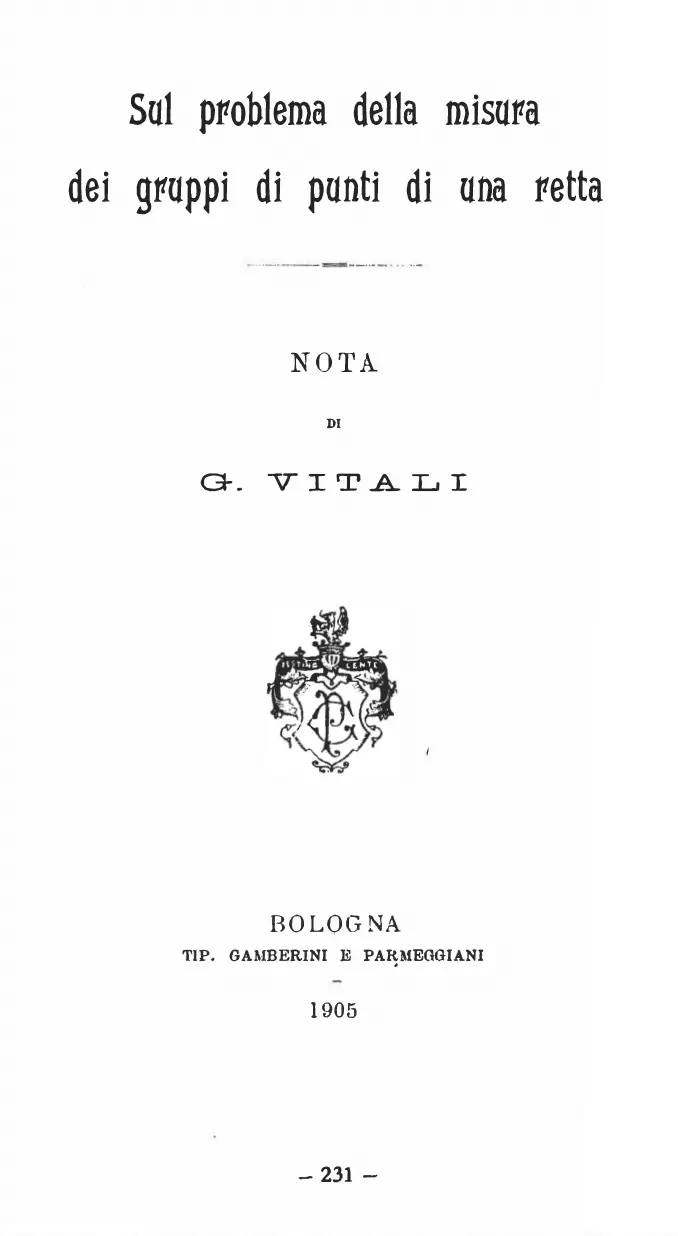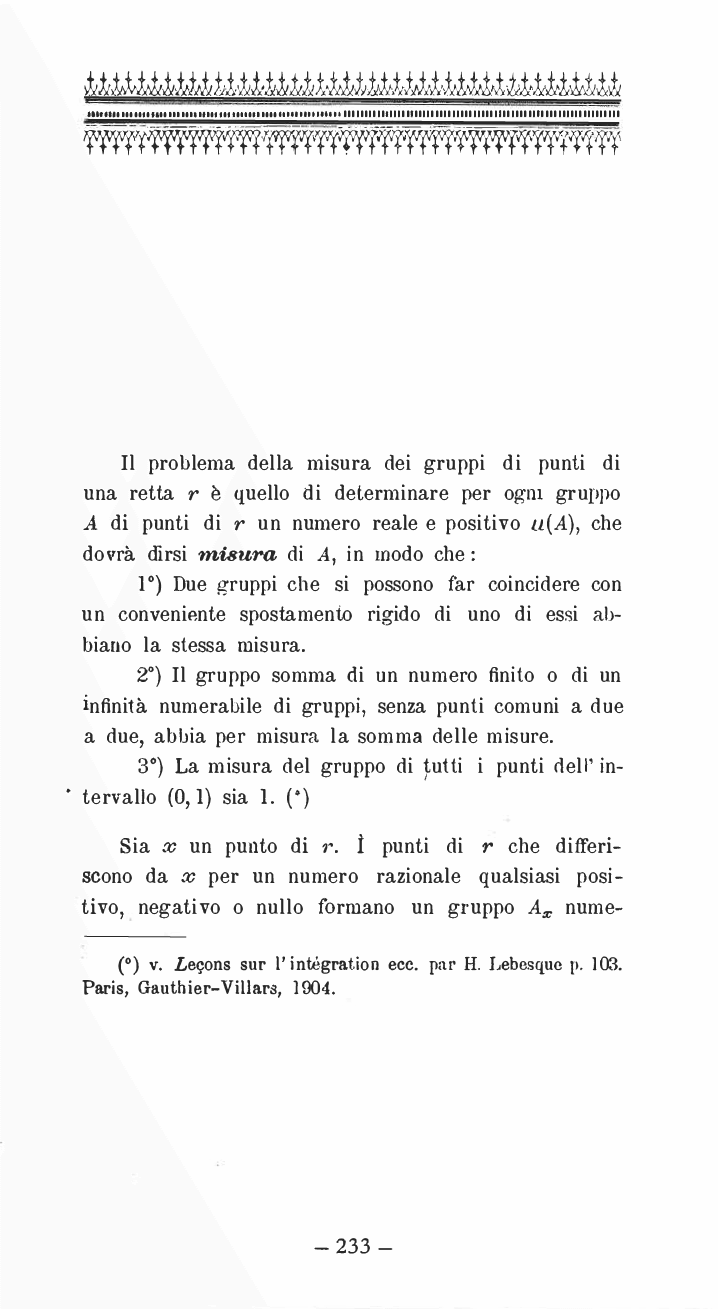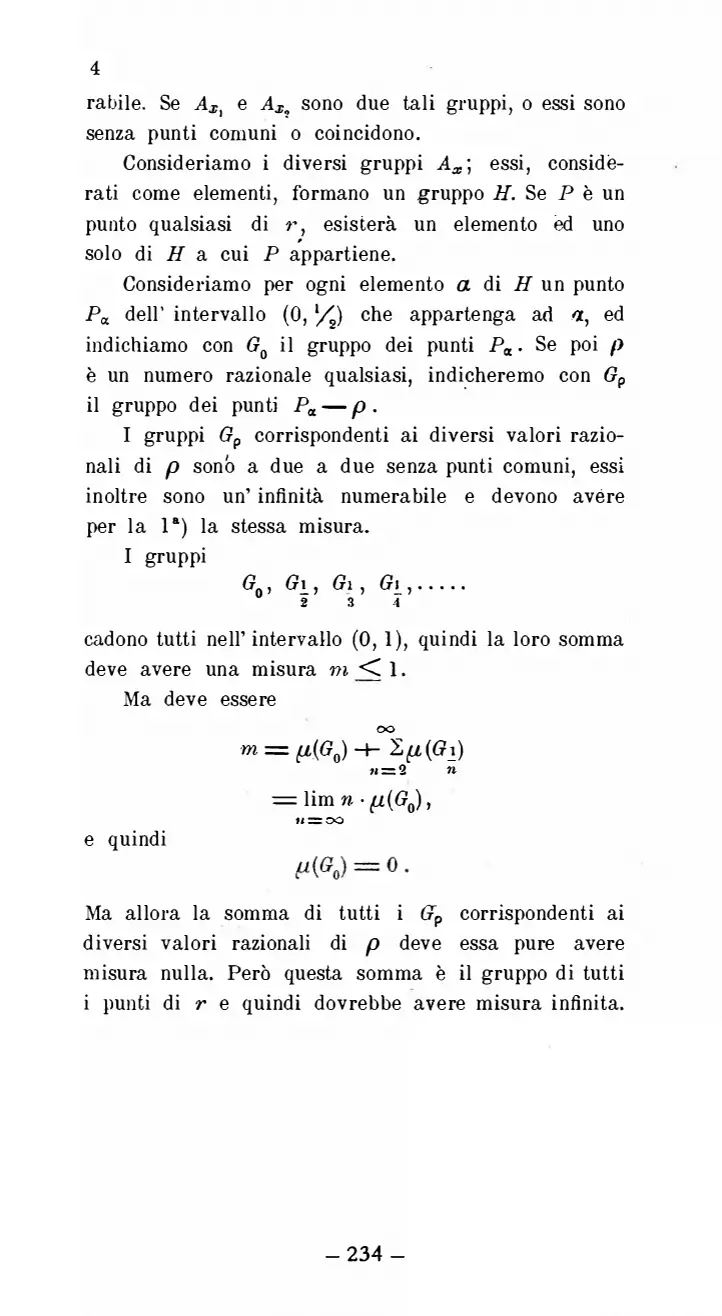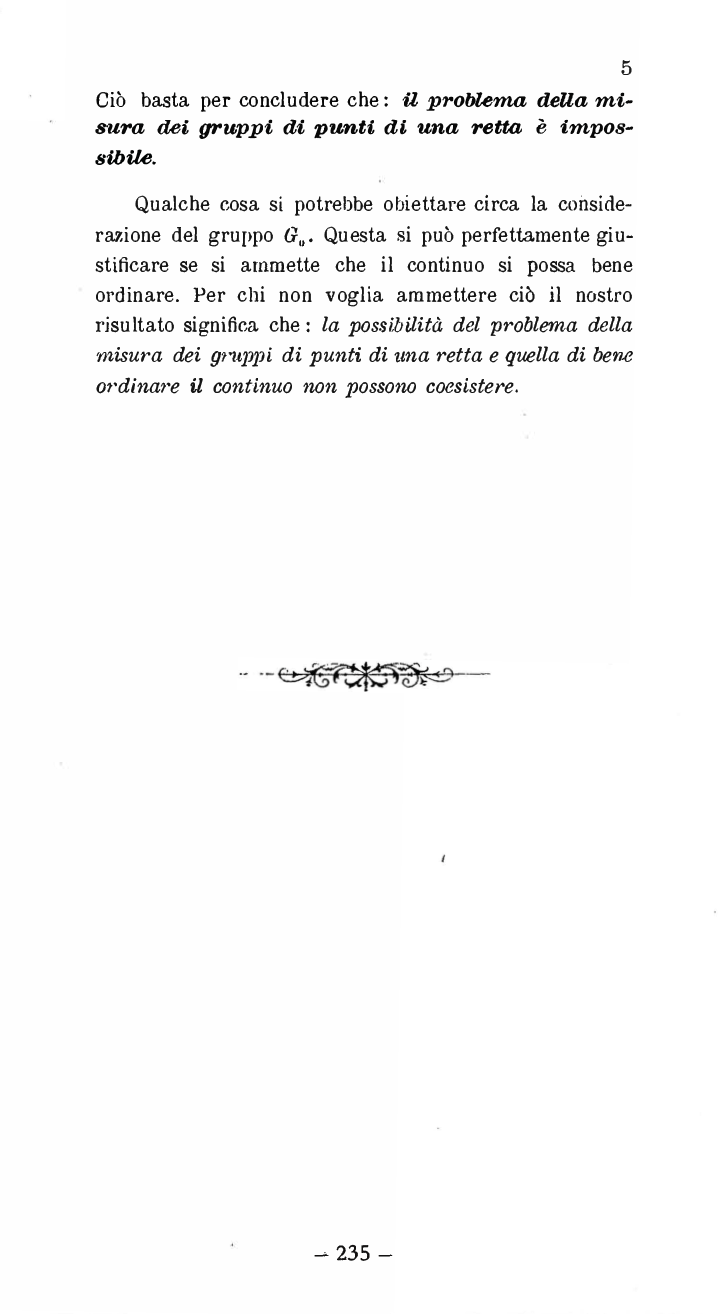Giuseppe Vitali
“Sul problema della misura dei gruppi di punti di una retta”
(On the problem of measuring sets of points on a straight line)
• English Translation •
This is an English translation of Giuseppe Vitali’s paper of 1905 on the question of the measurability of certain sets by the standard rules of measure, given the axiom of choice/
English translation by James R Meyer, copyright 2022 jamesrmeyer.com
On the problem of measuring sets of points on a straight line
by Giuseppe Vitali
The problem of measuring sets of points of a straight line
(1) Two sets that can be made to coincide with a convenient rigid displacement of one of them have the same measure.
(2) The sum set of a finite number of sets, or of a denumerable infinity of sets, without points common to any two, has a measure that is the sum of the measures.
(3) The measure of the set of all points of the interval (0, 1) is 1.
Let
Consider different
For each element
The sets
The sets
all fall within the interval (0, 1), hence their sum must have a measure
But it must be the case that:
and therefore
But then the sum of all
This suffices to conclude that:
the problem of measuring the sets of points of a straight line is insurmountable.
Some objections might be raised with respect to the argument regarding the
a solution to the problem of measuring sets of points of a straight line is not possible if the continuum is well-ordered.
Original Italian text






Rationale: Every logical argument must be defined in some language, and every language has limitations. Attempting to construct a logical argument while ignoring how the limitations of language might affect that argument is a bizarre approach. The correct acknowledgment of the interactions of logic and language explains almost all of the paradoxes, and resolves almost all of the contradictions, conundrums, and contentious issues in modern philosophy and mathematics.
Site Mission
Please see the menu for numerous articles of interest. Please leave a comment or send an email if you are interested in the material on this site.
Interested in supporting this site?
You can help by sharing the site with others. You can also donate at where there are full details.
where there are full details.